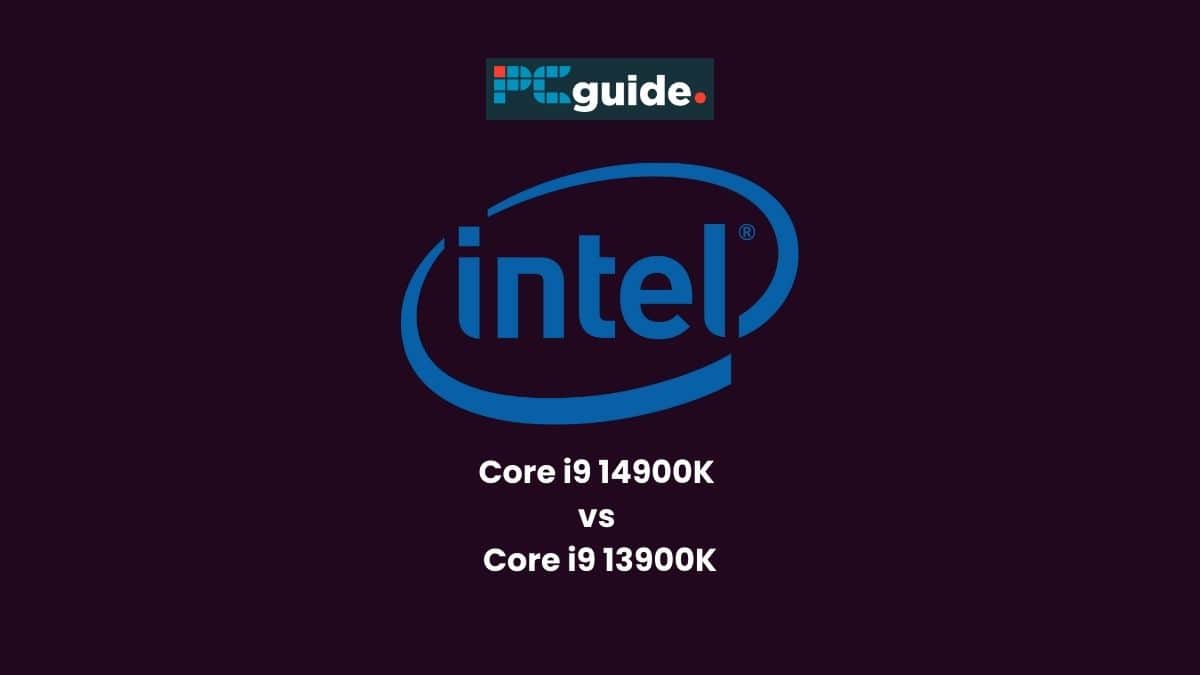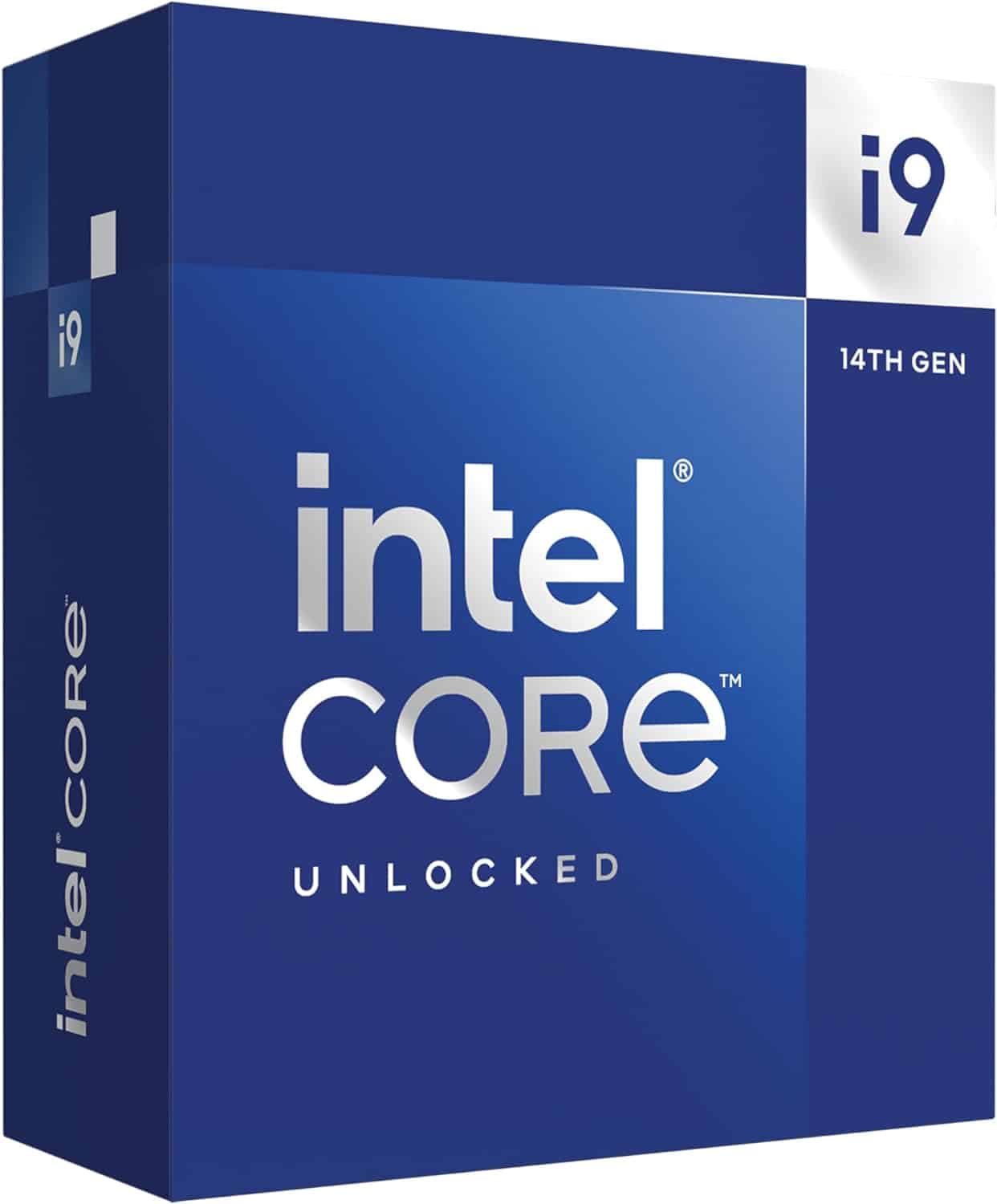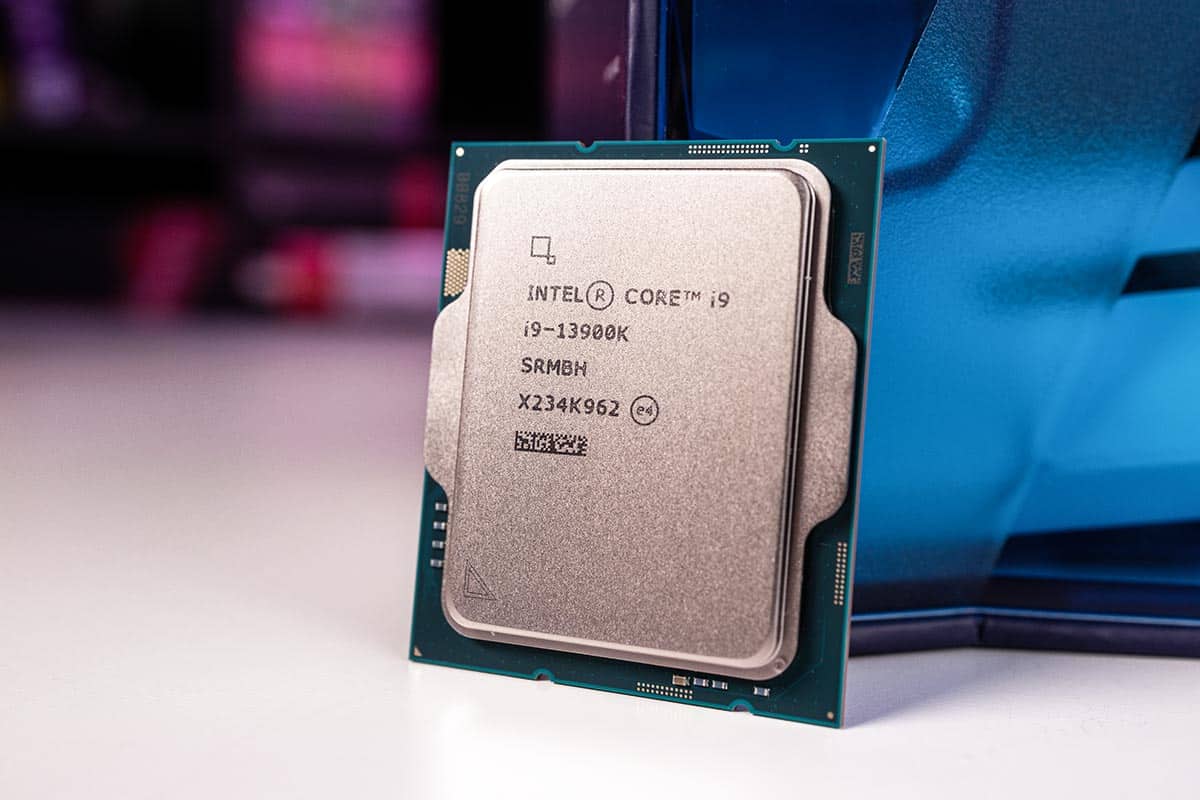Intel Core i9 14900K vs Intel Core i9 13900K – which is better?

Table of Contents
In the heated battle of processors, the Intel Core i9 14900K's vs the Intel Core i9 13900K is capturing the tech world’s attention. As the 3rd generation of the LGA1700 takes its form, Intel’s significant launch of its 14th gen brings the Raptor Lake refresh series.
In this article, we’re pitting the Intel Core i9 14900K against its predecessor, the Core i9 13900K. Through a detailed analysis, we aim to shed light on whether the newest Core i9 offering truly stands out or if it’s just a minor repeat of its predecessor. So if you’re looking to buy a new Intel 14th gen CPU, this is for you.
Or, if you want to check out our Core i9 14900K review, we also have a look at the 13900K and 13900KS and how things stack up. Right, let’s get going.
Core i9 14900K vs Core i9 13900K – specs
Each new generation of Core i9 brings about anticipation and excitement among tech and processor enthusiasts. With Intel’s reputation for groundbreaking advancements and fierce competition in the CPU market, the release of the 14th generation is no exception.
Diving into the detailed specs, it’s evident that both the Intel Core i9-14900K and the Core i9-13900K are powerhouses in their own right, especially when it comes to core configuration. Both CPUs showcase an impressive 8+16 core (24 cores in total) layout matched with 32 threads. This would make them suitable for both multitasking and intensive workloads.
However, as we see in our review, the Core i9-14900K has the potential to edge past its predecessor, as you’d expect from a superceding chip with the win in terms of clock speeds. With a base clock of 3.2 GHz, and the potential to turbo up to a blazing 6.0 GHz (13900KS levels) thanks to the Thermal Velocity Boost, there should be clear gains.
It’s a noticeable +200 MHz (0.2 GHz) jump up from the 13900K, which operates between a 3 GHz base clock and a 5.8 GHz boost clock. Both CPUs, despite their differences in speed, share an identical 32 MB L2 cache, 36 MB L3 cache, and a base TDP of 125W, keeping the playing field relatively level in these aspects.
| Specification | Intel Core i9 14900K | Intel Core i9 13900K |
|---|---|---|
| CORES | 8+16 (24) | 8+16 (24) |
| THREADS | 32 | 32 |
| BASE CLOCK | 3.2 GHz | 3 GHz |
| BOOST CLOCK | 6.0 GHz | 5.8 GHz |
| L2 / L3 CACHE | 32 / 36 MB | 32 / 36 MB |
| TDP (PL1) | 125W | 125W |
| MSRP | $599 US | $589 US |
Beyond the visible uptick in clock speed, the Intel Core i9-14900K does not seem to offer any remarkable leap in specifications. Given its moniker as a part of the 14th series, we may have anticipated a considerable enhancement in various facets, such as a tangible reduction in power consumption or an expanded memory cache.
To draw a comparison, if we juxtapose the i9-14900K against the likes of the Ryzen 9 7950X3D, which currently holds our crown as the premier gaming CPU, the Intel processor seemingly lags in raw performance. Such comparisons underscore the significance of memory cache in propelling CPU performance, a metric where AMD’s chip seems to have an upper hand. Overall, this comparison brings to light the view that sheer clock speeds aren’t the sole determinant of a CPU’s prowess. Holistic improvements across the CPU specs are instrumental in achieving an impressive upgrade.
Core i9 14900K vs Intel Core i9 13900K – performance indicators
The Intel Core i9-14900K may seem like a subtle respawn of the i9-13900K upon initial inspection. However, when delving deeper, the primary enhancement becomes clear: the increased clock speeds. While this boost in frequency promises applications a chance at a smoother and swifter execution, it’s somewhat surprising that other anticipated improvements are absent.
Though higher clock speeds can offer better performance, it would naturally be expected that such a pivotal release might get a more comprehensive set of enhancements. As such, if you’re looking for a proper upgrade from a 13900K, this isn’t looking to be that.
As with many technological enhancements, there’s a caveat. The jump in speed naturally brings about an increase in power demands. So, the Core i9 14900K ends up running a little hot (with 10% throttling in our review test, vs 13% of the 13900K). Therefore, to ensure that your CPU upgrade runs efficiently and stays within safe temperature limits, you might want to think about investing in a substantial cooling solution for the 14th gen. This is even more important considering that the i9-13900K itself already demands rigorous cooling to keep its temperatures below the 90-100°C mark.
Intel Core i9 14900K rumored price vs Intel Core i9 13900K
Moving on to the pricing, we can reflect on the fact that Intel’s pricing strategy has remained fairly consistent over the past few years, giving us reliable benchmark predictions. The Core i9-14900K is priced at $599 USD, which is nearly equally matched to the Core i9-13900K’s $589 MSRP. The pricing of the six new SKUs (14900K/KF, 14700K/KF, 14600K/KF) remains fairly consistent with the Meteor Lake release, to ensure that Intel's powerful new-gen processors will still be accessible to a broad range of users. It may also mean better 13th gen deals.
Intel is staying the course with its pricing strategy, reflecting a sense of consistency for enthusiasts and consumers alike. This trend doesn’t just end with these two models, as pricing for the entire CPU lineup will likely bear a striking resemblance to the Raptor Lake series. Termed the “Raptor Lake refresh”, this series seems poised to usher in enhancements across the board, barring the pricing. That said, considering the capabilities these chips are believed to bring to the table overall, the slight bump in pricing does seem justified.
PC Guide view
In wrapping up our assessment, the Intel Core i9-14900K won’t be bringing forward a substantial upgrade over its elder counterpart, the 13900K but it is surely now the best CPU for gaming. The differences, though present in the Core i9 14900K vs Core i9 13900K seem marginal at best, as seen in our own review and our sister title WePC’s 14900K review. If the MSRP for the 14900K holds, then opting for this chip to gain that slight edge in performance might be a reasonable choice for enthusiasts and professionals alike – but only if you demand the very best. For 13900K users, there’s not much to see – and if you want a 13900K, keep an eye on prices!


